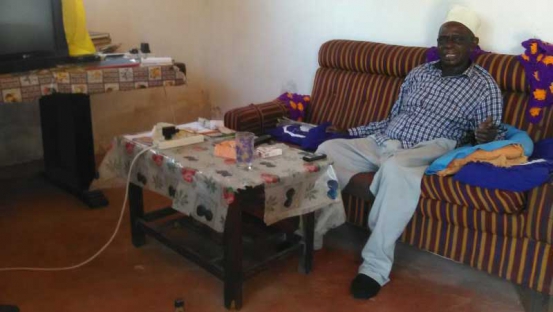×
The Standard e-Paper
Fearless, Trusted News

At a small trading centre known as Bomani, along the Ukunda-Lunga Lunga highway, resides an ageing former Member of Parliament in a cluster of three old houses.
In each house, lives one of his three wives and their children. Mzee Kassim Mwamzadi, whose fourth wife died a while ago, owns a fourth house a short distance away across the highway.